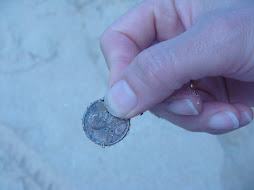
Guess what the ocean brought me? A Heart
Musings and what are you thinking about?
Is he preaching religious freedom or restricting religious freedom?
Do you embrace religious freedom by allowing everyone free expression to wear what they believe in? Or should we restrict dress code such that we are all scrubbed clean of any religious inclinations? Which is the true representation of religious freedom?
“The burqa is not welcome on French territory,” Mr. Sarkozy said. “In our country, we cannot accept that women be prisoners behind a screen, cut off from all social life, deprived of all identity.”
The French President Nicolas Sarkozy saw religious freedom by restricting the adornment of personal effects symbolizing respective faith. Most of us would draw reference to the women particularly in the Salafi strain of Islam, where a minority chooses to wear full black cloaks covering the entire body, including a small net covering the eyes.
I agree the complete “black-out” outfits looked overwhelmingly inhibitive. I find it difficult to justify the religious expression. However, I am certain the Muslim community would defend their women that wearing burqas is their Muslim identity and faith—nothing to be ashamed of. Just as a nun wearing her habit or someone wearing a cross in public. Should they be made illegal as well?
What about those who not only choose to remain in their polygamous sect but usher their underage daughters into polygamy and worse, marry them off to someone twice their age? Should they have the religious freedom to do what they believe in?
I wonder, “What is religious freedom?”
| Take the Tour | |||
| mar 31 | Save Energy at Home
|


TDG Editor note: In the market for a new washer? Look for an energy-efficient front-loading clothes washer and other green laundry gear.
Also see Green and Gorgeous Laundry Room Appliances.
Give Up 2 DegreesTDG Editor note: See more winterization tips.

